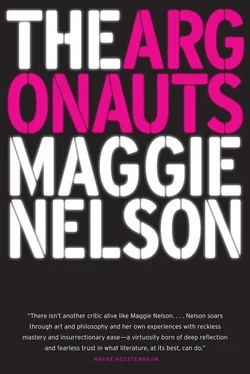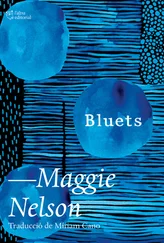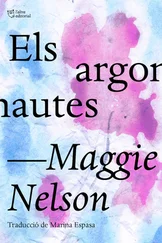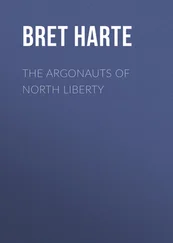Maggie Nelson - The Argonauts
Здесь есть возможность читать онлайн «Maggie Nelson - The Argonauts» весь текст электронной книги совершенно бесплатно (целиком полную версию без сокращений). В некоторых случаях можно слушать аудио, скачать через торрент в формате fb2 и присутствует краткое содержание. Год выпуска: 2015, ISBN: 2015, Издательство: Graywolf Press, Жанр: Биографии и Мемуары, на английском языке. Описание произведения, (предисловие) а так же отзывы посетителей доступны на портале библиотеки ЛибКат.
- Название:The Argonauts
- Автор:
- Издательство:Graywolf Press
- Жанр:
- Год:2015
- ISBN:9781555973407
- Рейтинг книги:3 / 5. Голосов: 1
-
Избранное:Добавить в избранное
- Отзывы:
-
Ваша оценка:
- 60
- 1
- 2
- 3
- 4
- 5
The Argonauts: краткое содержание, описание и аннотация
Предлагаем к чтению аннотацию, описание, краткое содержание или предисловие (зависит от того, что написал сам автор книги «The Argonauts»). Если вы не нашли необходимую информацию о книге — напишите в комментариях, мы постараемся отыскать её.
The Argonauts Writing in the spirit of public intellectuals such as Susan Sontag and Roland Barthes, Nelson binds her personal experience to a rigorous exploration of what iconic theorists have said about sexuality, gender, and the vexed institutions of marriage and child-rearing. Nelson's insistence on radical individual freedom and the value of caretaking becomes the rallying cry of this thoughtful, unabashed, uncompromising book.
The Argonauts — читать онлайн бесплатно полную книгу (весь текст) целиком
Ниже представлен текст книги, разбитый по страницам. Система сохранения места последней прочитанной страницы, позволяет с удобством читать онлайн бесплатно книгу «The Argonauts», без необходимости каждый раз заново искать на чём Вы остановились. Поставьте закладку, и сможете в любой момент перейти на страницу, на которой закончили чтение.
Интервал:
Закладка:
And yet — while pumping milk may be about nourishment, it isn’t really about communion. A human mother expresses milk because sometimes she can’t be there to nurse her baby, either by choice or by necessity. Pumping is thus an admission of distance, of maternal finitude. But it is a separation, a finitude, suffused with best intentions. Milk or no milk, this is often the best we’ve got to give.
Once I suggested that I had written half a book drunk, the other half sober. Here I estimate that about nine-tenths of the words in this book were written “free,” the other one-tenth, hooked up to a hospital-grade breast pump: words piled into one machine, milk siphoned out by another.
The phrase “toxic maternal” refers to a mother whose milk delivers poison along with nourishment. If you turn away from the poison, you also turn away from the nourishment. Given that human breast milk now contains literal poisons, from paint thinners to dry-cleaning fluid to toilet deodorizers to rocket fuel to DDT to flame retardants, there is literally no escape. Toxicity is now a question of degree, of acceptable parts per unit. Infants don’t get to choose — they take what they can get, in their scramble to stay alive.
I had never thought much about this dilemma until after I had been working for many years in a bar that was regularly voted “a smoker’s paradise” in a New York City guidebook. I had quit smoking a few months before taking the job, primarily because cigarettes made me feel so completely awful, and now I was spending hundreds, if not thousands, of dollars on an acupuncturist to help me with swollen glands and difficulty breathing as a result of inhaling smoke that wasn’t even mine. (I ended up quitting the job about a month before Mayor Bloomberg’s ban took effect; in my final hours, I secretly allowed myself to be interviewed by the antismoking crusaders, to advance their cause.) Anyone to whom I complained at the time said — wisely! — Why don’t you just get a different job? There are hundreds upon hundreds of restaurants and bars in New York City . My therapist — I had taken on yet another choking shift in order to keep seeing her — suggested I help rich kids study for the SAT instead, which made me want to sock her. How could I explain? I had already had a hundred restaurant jobs in New York City, and finally I had found one at which I made more in a week than I would have in an entire semester as an adjunct instructor (the other discernible option). I also thought — a larval Karen Silkwood— if “they” —whoever they are— let me work here, it couldn’t be that bad, could it?
But it was that bad. The bills I stashed under my mattress were almost wet with smoke, and stayed that way until rent time. And it’s only now that I see that the job ensured me something else I needed: the constant company of alcoholics apparently worse off than I was. I can still see them all: the silent owner who had to be carried into the back of a taxi at dawn after he’d blacked out from Rolling Rocks and shots of Stoli that we’d served him, raking in his Wall Street — derived tips; the punk Swedes who drank shot after shot of jalapeno-pickled vodka dissolved in iced coffee (the Swedeball, we called it); the rotted teeth of a successful foley editor; the man who inexplicably took off his belt after a few Hurricanes and started whipping a fellow diner with it; the woman who left her baby in a car seat under the bar one night and forgot about it … their example, and the ease with which I deemed myself together by comparison, purchased me a few more years of believing alcohol more precious than toxic to me.
The self without sympathetic attachments is either a fiction or a lunatic…. [Yet] dependence is scorned even in intimate relationships, as though dependence were incompatible with self-reliance rather than the only thing that makes it possible .
I learned this scorn from my own mother; perhaps it laced my milk. I therefore have to be on the alert for a tendency to treat other people’s needs as repulsive. Corollary habit: deriving the bulk of my self-worth from a feeling of hypercompetence, an irrational but fervent belief in my near total self-reliance.
You’re a great student because you don’t have any baggage , a teacher once told me, at which moment the subterfuge of my life felt complete.
One of the gifts of recognizing oneself in thrall to a substance is the perforation of such subterfuge. In place of an exhausting autonomy, there is the blunt admittance of dependence, and its subsequent relief. I will always aspire to contain my shit as best I can, but I am no longer interested in hiding my dependencies in an effort to appear superior to those who are more visibly undone or aching. Most people decide at some point that it is better … to be enthralled with what is impoverished or abusive than not to be enthralled at all and so to lose the condition of one’s being and becoming . I’m glad not to be there right now, but I’m also glad to have been there, to know how it is.
Sedgwick was a famous pluralizer, an instinctive maximalist who named and celebrated her predilection for profusion as “fat art.” I celebrate this fat art, even if in practice I am more of a serial minimalist — an employee, however productive, of the condensery. Rather than a philosopher or a pluralizer, I may be more of an empiricist, insofar as my aim is not to rediscover the eternal or the universal, but to find the conditions under which something new is produced (creativeness).
I have never really thought of myself as a “creative person”—writing is my only talent, and writing has always felt more clarifying than creative to me. But in contemplating this definition, I wonder if one might be creative (or queer, or happy, or held) in spite of oneself.
That’s enough. You can stop now: the phrase Sedgwick said she longed to hear whenever she was suffering. (Enough hurting, enough showing off, enough achieving, enough talking, enough trying, enough writing, enough living.)
The capaciousness of growing a baby. The way a baby literally makes space where there wasn’t space before. The cartilage nub where my ribs used to fit together at the sternum. The little slide in my lower rib cage when I twist right or left that didn’t used to slide. The rearrangement of internal organs, the upward squeezing of the lungs. The dirt that collects on your belly button when it finally pops inside out, revealing its bottom — finite, after all. The husky feeling in my postpartum perineum, the way my breasts filling all at once with milk is like an orgasm but more painful, powerful as a hard rain. While one nipple is getting sucked, the other sometimes sprays forth, unstoppable.
When I was writing on the poet James Schuyler in graduate school, my adviser noted in passing that I seemed oddly compelled by the idea of Schuyler’s flaccidity. His comments on this account made me feel guilty, as if he thought I were trying to neuter or castrate Schuyler, a closet Solanas. I wasn’t, at least not consciously. I just liked the way that Schuyler seemed to be performing, especially in his long poems, a drive to speech or creation not synonymous with desire in any typical sublimated-lust kind of a way. He had a cruising eye, to be sure (here he is in a grocery store: “I grabbed / a cart, went wheeling / up and down the aisles trying to get a front view of / him and see how he was / Hung and what his face was like”). But his poetics struck me as refreshingly without a will to power, or even a will to perversity. They feel triumphantly wilted, like so many of the flowers Schuyler paid tribute to.
This wiltedness may have had, in part, a chemical root. As Schuyler writes in “The Morning of the Poem”: “Remember what / The doctor said: I am: remembering and staying / off [the sauce]: mostly it’s not / So hard (indeed): did you know a side effect of / Antabuse can be to make / You impotent? Not that I need much help in that / department these days.” The climactic expulsion at the poem’s end is not come, but urine. Recalling a night long ago, drunk on Pernod in Paris, Schuyler writes: “I made it: there I was, confronting a urinal: I / inched down my zipper and put my right hand into / The opening: hideous trauma, there was just no way I could / transfer my swollen tool from hand to hand without a great / Gushing forth (inside my pants), like when Moses hit the rock: so / I did it: there was piss all over Paris, not to mention my shirt and pants, light sun tans.”
Читать дальшеИнтервал:
Закладка:
Похожие книги на «The Argonauts»
Представляем Вашему вниманию похожие книги на «The Argonauts» списком для выбора. Мы отобрали схожую по названию и смыслу литературу в надежде предоставить читателям больше вариантов отыскать новые, интересные, ещё непрочитанные произведения.
Обсуждение, отзывы о книге «The Argonauts» и просто собственные мнения читателей. Оставьте ваши комментарии, напишите, что Вы думаете о произведении, его смысле или главных героях. Укажите что конкретно понравилось, а что нет, и почему Вы так считаете.












